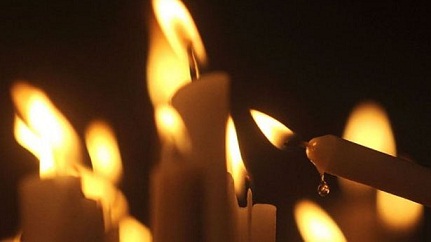
(Photo By Aaron T.Rose\DNE File)
The five-year prison sentence of prominent activist Alaa Abdel Fattah raised questions over the state’s stance towards the 25 January Revolution.
On Monday, the Cairo Criminal Court sentenced Abdel Fattah to five years in prison, in addition to an EGP 100,000 fine over assaulting the police and illegal protesting.
Defendant Ahmed Abdel Rahman received the same sentence as Abdel Fattah, with 18 other defendants receiving sentences between three and five years. Four other defendants received 15 years in absentia, with all defendants receiving the same fine as Abdel Fattah and having their forced theft charge dropped.
An appeal against the verdict can be lodged by the defence within 60 days of the verdict’s date, according to lawyers.
All 25 defendants were initially sentenced in absentia in June to 15 years in prison, in addition to an EGP 100,000 fine.
The state’s stance towards the 25 January Revolution and its activists, since the ouster of the Muslim Brotherhood government in July 2013 and the power shift to a military-backed government, seems inconsistent.
Egypt’s 2014 constitution cites the 25 January Revolution, and the popular June 2013 uprising leading to the ouster of Muslim Brotherhood’s government and president, as a revolution that “called for freedom, human dignity and social justice for all, and for Egypt to regain its independent will”.
The constitution’s prelude highlights the “prominent role of youth aspiring to a brighter future”.
However, Abdel Fattah, a 25 January Revolution icon, is not the first of the revolution’s youth to receive heavy prison sentences for protesting, especially after the Protest Law’s implementation in November 2013.
He joins other prominent activists: Ahmed Douma, who was sentenced earlier this month to life in prison; 6 of April Youth Movement leaders Ahmed Maher and Mohamed Adel, who received three years in prison; Abdel Fattah’s sister Sanaa Seif; and human rights defender Yara Sallam who received two-year sentences.
Abdel Fattah’s case dates back to a peaceful demonstration in front of the Shura Council dispersed by security forces on 26 November 2011. The demonstration was against the then-draft constitution which allowed the military trial of civilians.
The prosecution accused Abdel Fattah of assaulting security officer Emad Tahoun, beating him and stealing his walkie-talkie. Other unclear points in the trial include the sudden introduction of new evidence in a January session by the prosecution, which the judge in the case, Hassan Farid, accepted, despite the defence’s objections.
Abdel Fattah and other defendants were also accused of illegal protesting, assaulting police force, and rioting among other charges.
The session, which was also preceded by the Al Jazeera English journalists’ trial, was held at the Police Institute at Tora Prison, and was attended by activists and given intense media coverage.
Previous court sessions were disordered, with police eyewitnesses, including Tahoun himself, failing to answer most questions by the judge and defence lawyers regarding the exact timing and location of the alleged assault.
The verdict was met with anger and grief from activists and relatives who attended the session and they chanted against “military rule”.
President Abdel Fattah Al-Sisi mentioned Sunday in a televised speech that there are “many innocent people inside prisons”. He then added that “soon many of them will be released according to the available permissions”, noting that he does not interfere in judicial affairs.
Yet, despite Al-Sisi’s promises and his frequent calls to youth to participate in political life, the verdicts against political activists continues and the state’s stance towards the revolutions edges closer to enmity.


